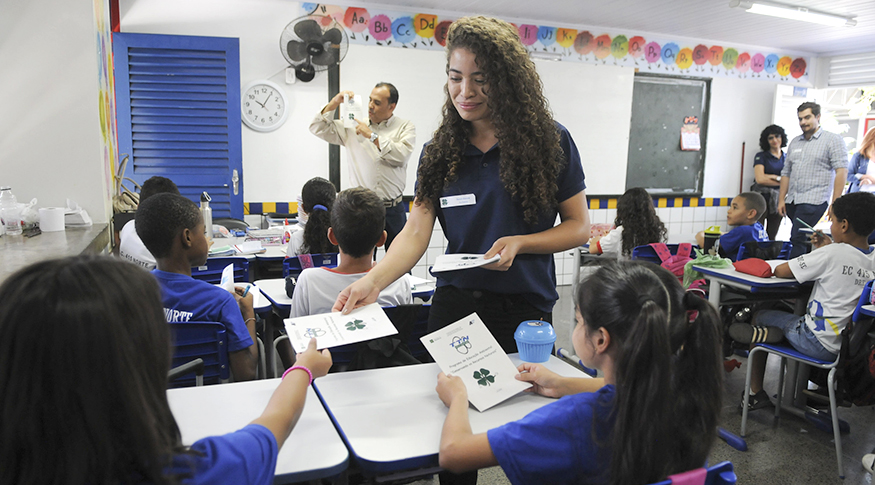IPCA
Inflation stands at 0.25% in February, the lowest for the month since 2000
March 11, 2020 09h00 AM | Last Updated: March 12, 2020 11h40 AM

The country's inflation was 0.25% in February, the lowest result for the month since 2000, when the index was 0.13%. The increase was driven by price rise at the beginning of the school year, especially in regular courses (4.42%). February's result was above the rate of 0.21% of January. The data are from the Extended National Consumer Price Index (IPCA), released today (11) by the IBGE.
In the cumulative result for the year, inflation accumulates 0.46% and, in the last 12 months, the index registered 4.01%. Of the nine groups of products and services surveyed, five increased in February. The main highlight is the education group, which presented the greatest change (3.70%) and the greatest impact (0.23 percentage points) in the month's index.
“Education usually has the greatest impact in February, which is when the annual tuition rise occurrs for the new school year. So this high took place in the regular courses, comrpising primary, secondary, higher degree levels as well as postgradation courses. Other courses also have influence, as preparatory and language courses”, explains the Price Index manager of the IBGE, Pedro Kislanov.
“Regular courses have a great impact because of their bigger weight in household consumption”, says Mr. Kislanov. They had a high of 4.42% and were respnsible for the greatest individual contribution (0.20 p.p.) to February's IPCA, whereas other courses had a high of 2.67%, with an impact of 0.02 p.p. The group Food and beverages, in turn, decelerated to 0.11%, due to meat prices again (-3.53%), which were down 4.03% in January.
“With this drop, the item meat is returning the 32.40% high in the cumulative rate of 2019, even though the return was not complete. It is important to highlight that the distribution between the areas is different. In Rio de Janeiro, for example, meat prices have fallen more, ” comments Mr. Kislanov. The deflation of meat contributed to the slowdown in food at home (0.06%, compared to 0.20% in January). Concerning the highs, the highlights were tomatoes (18.86%) and carrots (19.83%).
Food away from home (0.22%) also slowed down compared to January (0.82%). Meals (0.35%) and snacks (0.02%) showed smaller changes when compared to the previous month (1.05% and 0.42% respectively).
The group transportation (-0.23%) presented deflation in February, after having increased 0.32% in January. Gasoline (-0.72%) and airfare (-6.85%) were the biggest negative impacts in the group. The housing group (-0.39%) also registered deflation in February, after an increase of 0.55% in the previous month. The fall was mainly driven by the item electricity (-1.71%).
“It is all due to the change in the tariff flag. In January, the flag in effect was the yellow one, which overcharges consumption above 100 kilowatt/hour. In February, the green flag entered into effect, without the additional charge”, says Mr. Kislanov.
INPC changes 0.17% in February
The National Consumer Price Index, encompassing families with income of one to five minimum wages, changed by 0.17% in February, while it had registered 0.19% in January. The result is also the lowest for February since 2000, when the index was 0.05%. The cumulative index in the year was 0.36% and in the last 12 months, the index increased by 3.92%, below the 4.30% registered in the 12 months prior to that period.
Food products changed by 0.13% in February, after registering an increase of 0.45% in January. Non-food products changed by 0.18% in February, after rising 0.12% in January.




















